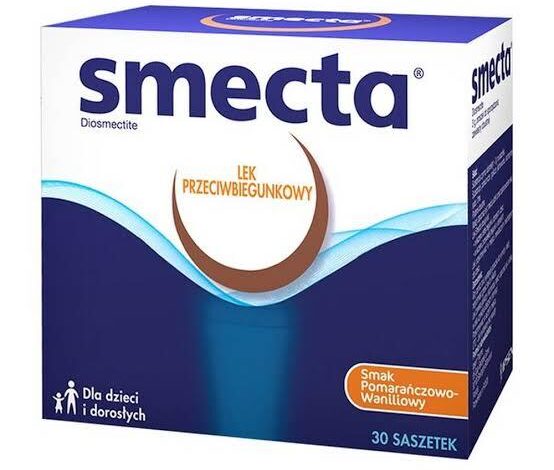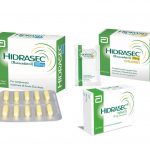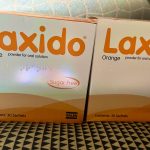Smecta: Uses, Dosage, Side Effects, Interactions

Smecta is a brand of diosmectite, a natural silicate of aluminium and magnesium used as an intestinal adsorbent in the treatment of several gastrointestinal diseases, including infectious and non-infectious acute and chronic diarrhoea, including irritable bowel syndrome diarrhea subtype. Other uses include: chronic diarrhea caused by radiation-induced, chemotherapy-induced, and HIV/AIDS-associated chronic diarrhea.
Its effectiveness in improving stool consistency is the result of its ability to absorb bacteria, viruses and toxins as well as strengthening the intestinal mucus barrier to reduce luminal antigens passing through the mucus barrier which in turn helps to reduce inflammation.
How to use Smecta
Treatment of acute diarrhea: Children and infants: Up to one year: 2 sachets a day for 3 days, then 1 sachet a day.
One year and older: 4 sachets a day for 3 days, then 2 sachets a day.
Adults: An average of 3 sachets a day.
In practice, the daily dosage can be doubled at the beginning of the treatment.
Other indications: In children and infants: Up to one year: 1 sachet a day.
Between 1 and 2 years: 1 to 2 sachets a day.
After 2 years: 2 to 3 sachets a day.
In adults: An average of 3 sachets a day.
Administration: The content of the sachet must be mixed in suspension directly before use.
Preferably to be taken: After meals if oesophagitis; Between meals, for other indications.
Children and infants: The content of the sachet may be mixed in a bottle of 50ml of water to be given during the day, or well mixed with a semi-liquid food, such as broth, compote, puree, baby food.
Adults: The content of the sachet may be mixed with half a glass of water.
What are the side effects of Smecta?
Smecta can cause side effects. Reported adverse events include:
- Rash
- Urticarial
- Angioedema
- Periorbital oedema.
Contraindications
Hypersensitivity to diosmectite or to one of the excipients.
Due to the presence of glucose and saccharose, this medication is contraindicated for patients who are fructose intolerant.
Special Precautions
The diosmectite must be used carefully by patients with history of severe chronic constipation.
In children, acute diarrhea must be treated in association with the early administration of an oral rehydration solution (ORS) to avoid dehydration.
In adults, the treatment does not dispense with rehydration, if this is considered to be necessary.
The amount of rehydration by oral rehydration solution or intravenously must be adapted to the intensity of the diarrhea, and the patient’s age and characteristics.
It is insoluble in water. It is usually taken orally as a suspension in warm water. In the field of geology, it is more commonly known as montmorillonite; the name is a contraction of “dioctahedral smectite”.
Drug Interactions
This product’s absorbent properties may interfere with the absorption periods and/or rates of another substance. It is recommended that this medication is not taken with any other medications together.





